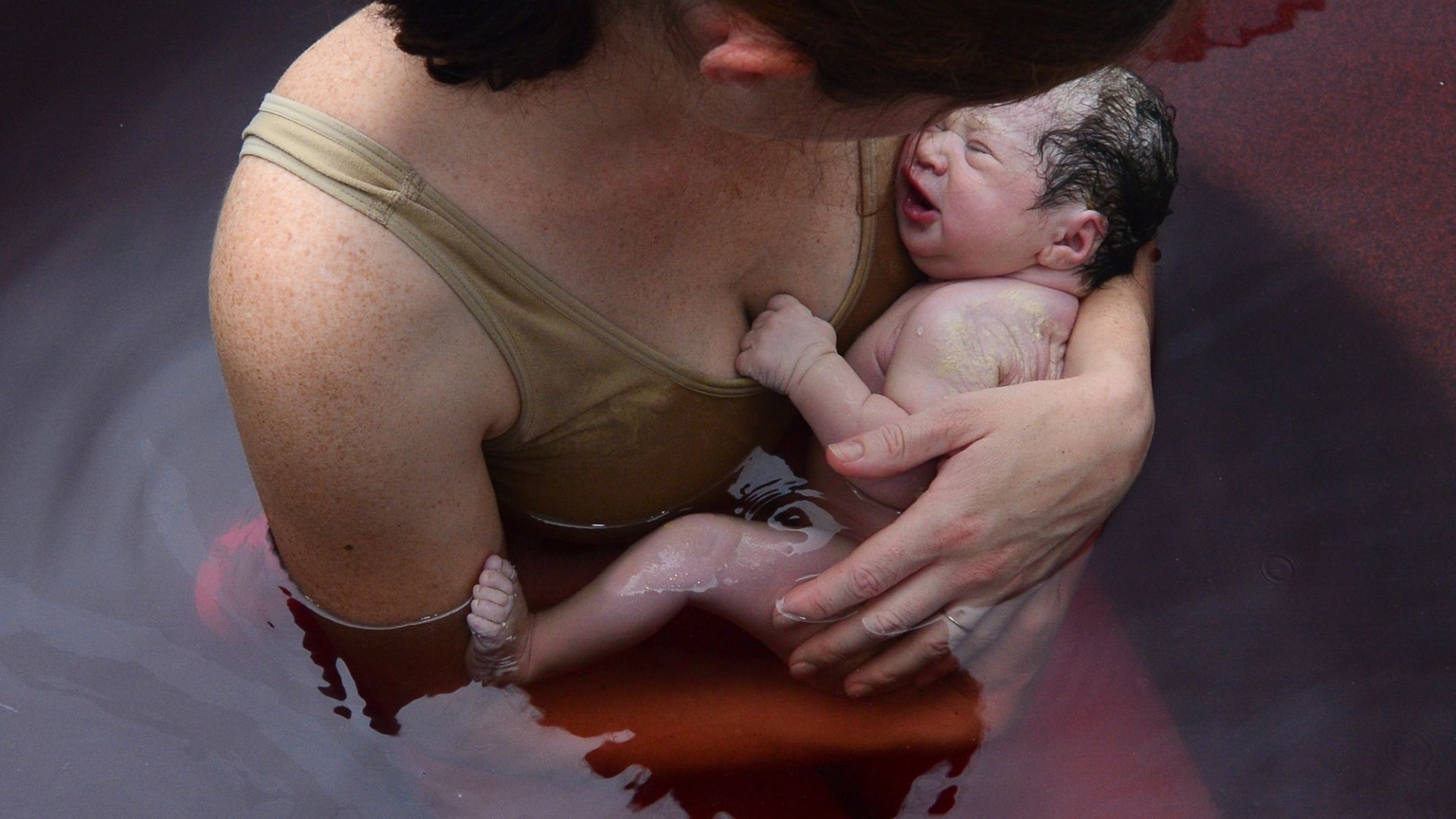It’s extraordinary isn’t it, how Christianity has always (at least in my experience) been expressed to us as such a “male -centered” religion?
My dad was a pastor and my grandfather a missionary, both progressive for their time, both loving, gentle, and compassionate. But I was in my late thirties before I first discovered God as my loving Heavenly Mother. The religion I was raised with was led by men, authorized by men, taught by men, with doctrine decided on by men. The women among us received God in a kind of “trickle down” way, where we were allowed to partake of this joy as long as it had been sanctioned by the elders. And even though they were kind, wise elders, they were still all men.
That’s extraordinary to me now, not only because I have come to know God as my most intimate Mother, but also because the whole event of this Incarnation—the birth of God into the world—was brought about by an experience that belongs solely to us, the “weaker sex.”
Only those who have experienced it can understand the tearing agony of contractions, the wild kicks of a whole human being that’s growing inside you, the tears and sweat, the humiliation of being spread wide while you pass a child, a placenta, the umbilical cord, and blood, and blood, and so much blood from the most intimate and vulnerable place in your body. Breasts engorged, sleepless nights, post natal confusion and depression—not to mention the shock and pain and shame (and just general annoyance) of bleeding monthly from adolescence to middle age!
Motherhood is an earthy, human, painful, female event, filled with soaring joy and searing pain. God came to us like this: weak and helpless. The first one to know him was a woman, and the first one to see him reborn was also a woman. But somehow we’ve erased these gritty female images from Christ’s birth, death, and rebirth story, preferring an image of Jesus as a white, clean, orderly, and business-like all American. Similarly, we prefer a Mary who is tidied up, serene, and most of all quiet. There’s no screaming and sweating, no stench of fluids in the Nativity Scenes we create.
Once, as a young mother living in the deep south, I was breastfeeding my newborn (with a blanket covering all the naked parts) on a bench outside of a Walmart, when an older lady—who clearly felt very humiliated for me—scolded me roundly with a “Oh honey! You cannot be doing that here!”
READ: Mary’s Virginity Matters, but Not for the Reasons You Think
To be honest I didn’t mind too much. She was only trying to protect me, teaching me what was taught to her: that our nakedness, our femininity, our vulnerability is a shameful thing and it needs to stay hidden. It’s not proper, and it’s not okay. This is a message we women receive again and again from the cradle on up. From our periods to our libido, to our menopause: it’s all like a very inconvenient secret that we’re supposed to pretend it isn’t there. It’s messy; no wonder people don’t want it in their religion.
It’s almost agonizing that many of us seem to prefer a twisted and perverse idea of masculinity in our image of God: one with guns and guts and “greatness.” Is it any wonder that the most weak and vulnerable among us, the most marginalized, flee from this poorly made image of the Creator?
More and more as the years go by, I am convinced that God became a human because she wanted us to know that we are okay just as we are. She wanted us to accept our messy humanness with all its vulnerability.
God became a poor, working class person; and in doing so, God declared the least of us sacred. The stable became holy ground, the unwed pregnant girl became a saint. No prosperity to bind us to the rich one, no renown to bind us to the famous one, no power to bind us to the strong one, there is just love to bind us to Love.
God became poor, obsolete, weak, and lived with those of us who are poor, obsolete, and weak, so we could choose to love her, Our Wonderful Heavenly Mother, freely.
In eliminating the most female parts from the Christmas story, we’ve eliminated the most human parts. But becoming human, being human, affirming the sacredness of humanity, was everything the incarnation was supposed to teach us in the first place! God is with us. God is one of us. Accepting and loving ourselves, wherever we are on the gender spectrum, this I believe, was the very heart of what Christ came to reveal. Blood, sweat, tears, screams and all.

